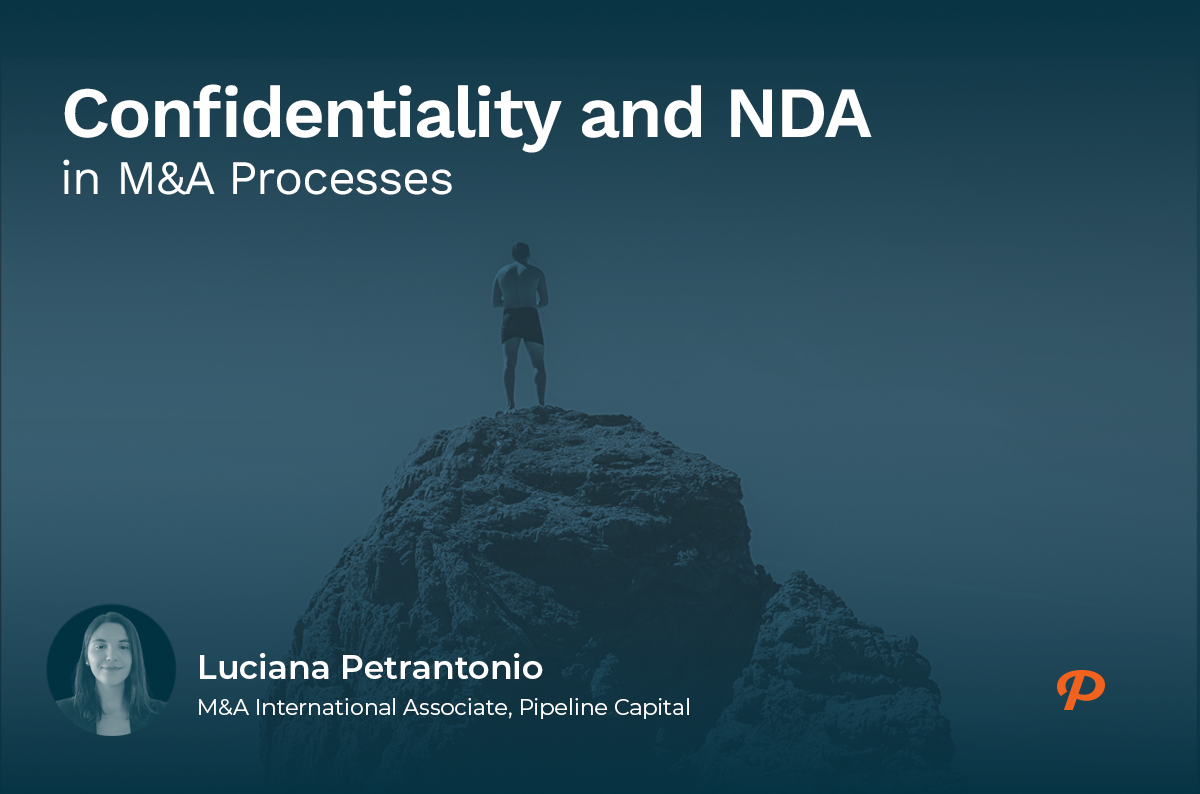In the world of mergers and acquisitions (M&A), confidentiality is crucial. Protecting your company’s sensitive information is essential to ensure that the sale process is carried out securely and efficiently. This is where Non-Disclosure Agreements (NDAs) come into play.
An NDA is a legal contract that protects the disclosure of confidential information between the parties involved. In the context of an M&A process, the NDA ensures that the seller’s sensitive information remains protected when shared with the buyer. This document represents the first formal step in an M&A process, marking the beginning of a potential transaction, which is why proper drafting is of critical importance.
This article explores the relevance of NDAs in M&A processes, how to draft and negotiate an effective NDA, and specific recommendations when the counterparty is a direct competitor.
Why Are NDAs Important in M&A?
NDAs play a key role for several reasons:
- Protection of sensitive information: They ensure that data such as financial statements, business strategies or proprietary technology is not disclosed to unauthorized third parties.
- Prevention of unfair competition: They prevent the receiving party from using confidential information for its own benefit or to compete.
- Fostering trust: They demonstrate to the potential buyer a clear commitment to privacy and responsible handling of information.
- Regulatory compliance: They help meet legal frameworks related to privacy and data protection.
How to Draft and Negotiate an Effective NDA
For an NDA to serve its purpose, it must be properly drafted and reflect a balance between the parties. Below are some key considerations.
Drafting Key Clauses
Identification of the parties
Clearly identify the signing parties. The NDA can be mutual, where both parties exchange information, or one-way, if only the seller shares data. It should also state whether third parties, such as affiliates, advisors, or external counsel, may access the information.
Definition of confidential information
Specify the types of information that will be protected, including oral disclosures when agreed upon. You may include a mechanism for updating the list of protected information.
Confidentiality obligations
State that the information may only be used to evaluate the M&A opportunity and must be protected with reasonable safeguards.
Exceptions to confidentiality
Clearly list situations where the confidentiality obligation does not apply. For instance, information already in the public domain, received prior to signing, or required to be disclosed by law.
Term of the agreement
Indicate the period during which confidentiality obligations remain in force. Depending on the nature of the information, this is typically between two and five years and may be extended for particularly sensitive content.
Consequences of breach
Establish penalties for violations. In addition to potential compensation, the NDA may provide for injunctive relief or other urgent legal remedies.
Negotiation Considerations
- Ensure that the agreement is reasonable and balanced.
- Consider working with a legal advisor specialized in M&A to review the document and strengthen your negotiation position.
Signing an NDA with a Direct Competitor
When the counterparty is a direct competitor, the risks increase significantly. Sharing strategic information requires greater caution. Consider the following recommendations:
- Limit the scope of shared information: Share only what is strictly necessary for the transaction analysis.
- Establish use restrictions: Ensure that the information may only be used to assess the deal.
- Temporary non-compete clauses: Consider including a short-term restriction if legally permissible.
- Audit rights: Include mechanisms to audit information usage in case of justified suspicion.
- Indemnification for damages: This is particularly recommended in high-risk competitive scenarios.
Non-Solicitation Clauses
These clauses become particularly relevant when the parties operate in overlapping markets. They can serve as an additional layer of protection during and after the negotiation process.
- Employee non-solicitation: Include a clause prohibiting the other party from attempting to hire or attract your employees for a defined period.
- Client non-solicitation: Include a clause that prevents the competitor from approaching or attempting to poach your clients, particularly using confidential information.
- Term of validity: These restrictions typically last between one and two years, depending on the sensitivity of the relationship.
- Sanctions in case of breach: Define clear and proportional consequences in the event of a violation.
Conclusion
Non-Disclosure Agreements are an essential tool to protect confidential information and build a relationship of trust in M&A processes. Properly drafting these agreements, especially when dealing with competitors, is key to minimizing risks and preventing the misuse of sensitive information. A well-structured NDA not only safeguards confidentiality but also positions your company as a serious and professional counterpart, capable of negotiating with clarity and integrity. Do not underestimate its importance. It is an investment in the security and success of your M&A transaction.

